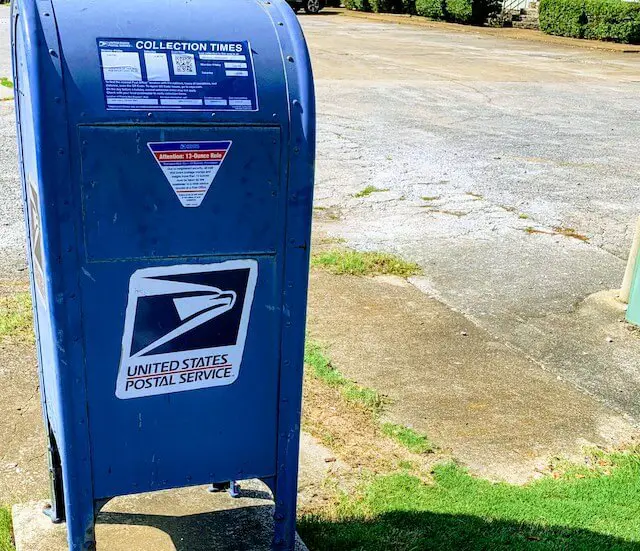The United States Postal Service (USPS) is making an effort to crack down on counterfeit postage in order to recoup the lost revenue that it creates for the agency. This will mean a significant change in how the USPS handles any suspect packages, and Americans will want to take note of the new rules.
USPS has seen a surge in counterfeit postage in recent years and this is harming the bottom line of an agency already suffering from financial problems. As USPS notes, counterfeit postage is a direct attempt to defraud the agency, so it is not taking kindly to the situation.
How USPS Proposes to Combat Counterfeit Postage
In order to crack down on counterfeit postage, the USPS has issued a proposed rule in the Federal Register which will make changes to how USPS handles packages with counterfeit postage.
Specifically, it is amending regulations to consider all items mailed with counterfeit postage to be considered abandoned and can therefore be opened and/or discarded at the discretion of the Postal Service. The change would apply to section 604.8.4 of the Mailing Standards of the United States Postal Service, Domestic Mail Manual (DMM®).
USPS plans to implement this change on April 1, 2023.
What is Considered Counterfeit Postage?
Mail sent through the Postal Service without any postage affixed is endorsed “Returned for Postage” and is returned to the sender without any attempt at delivery.
Counterfeit postage, however, is different from missing postage in that it is considered a criminal attempt to defraud the Postal Service, while the absence of any postage may reflect an inadvertent failure to affix postage. Mail with counterfeit postage often does not have an accurate return address, or it has a return address not related to the mailer.
The proposed rule defines counterfeit postage as “any marking or indicia that has been made, printed, or otherwise created without authorization from the Postal Service that is printed or applied, or otherwise affixed, on an article placed in the mails that indicates or represents that valid postage has been paid to mail the article.”
This could include imitations of stamps which the proposed rule defines as “Matter bearing imitations of postage stamps, in adhesive or printed form, or private seals or stickers resembling a postage stamp in form and design, is not acceptable for mailing.”
Who Might Be Impacted by this Rule Change?
Anyone receiving mail sent through the Postal Service has the potential to be impacted. However, people who purchase goods online have the most obvious potential for an unpleasant surprise since the items they ordered could be seemingly randomly discarded by the Postal Service if they happen to contain counterfeit postage. Customers could be left wondering why they never received the items they ordered.
According to USPS, “Consumers purchasing online items may be surprised to find out that the vendor mailed their goods using counterfeit postage. Under the new regulations, such items will be considered abandoned and disposed of at the Postal Service’s discretion. When this occurs, consumers will have to seek recourse from the vendor.”
USPS adds in the proposed rule, “We believe this proposed revision will provide customers with clarity on the handling of items bearing counterfeit postage.”
Public Comment Period on USPS Rule Change
USPS notes in the proposed rule that it is exempt from the notice and comment requirements of the Administrative Procedure Act regarding proposed rule making, but nevertheless the agency is inviting public comments for 30 days.
Comments can be submitted online via the Federal Register website or they can be sent by email to PCFederalRegister@usps.gov with the subject of “Counterfeit Postage.” Comments must be submitted by March 15, 2023.




